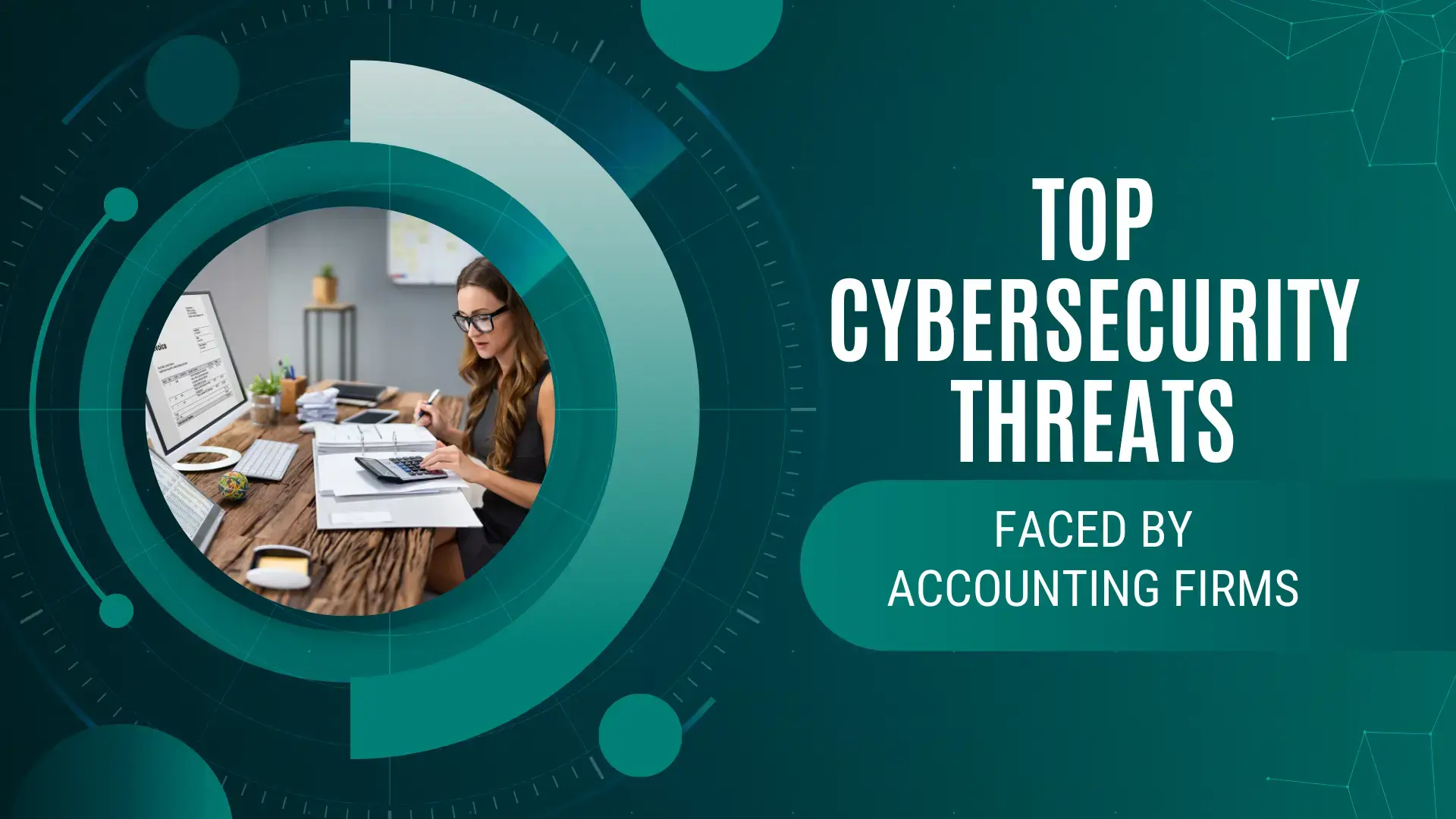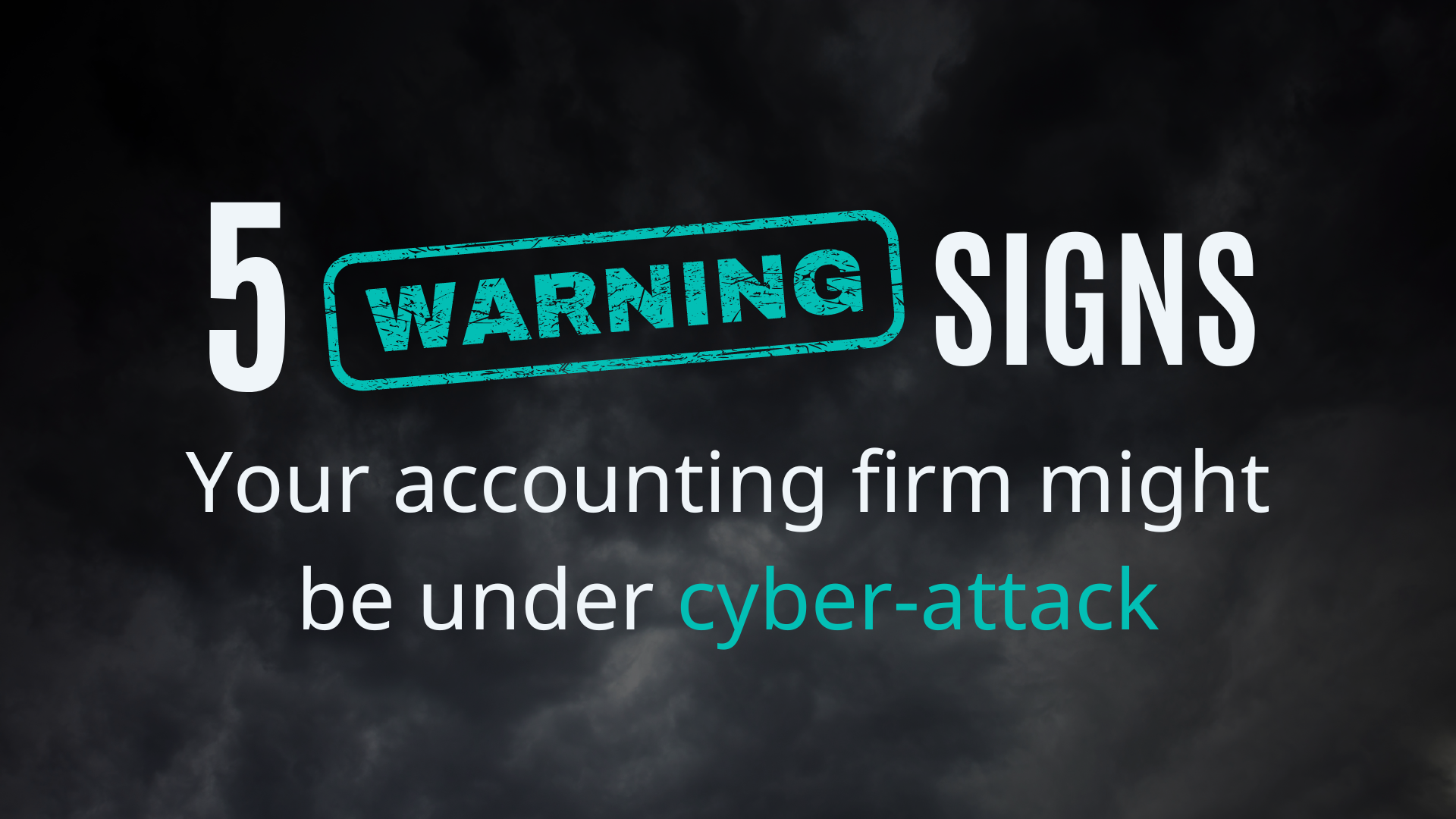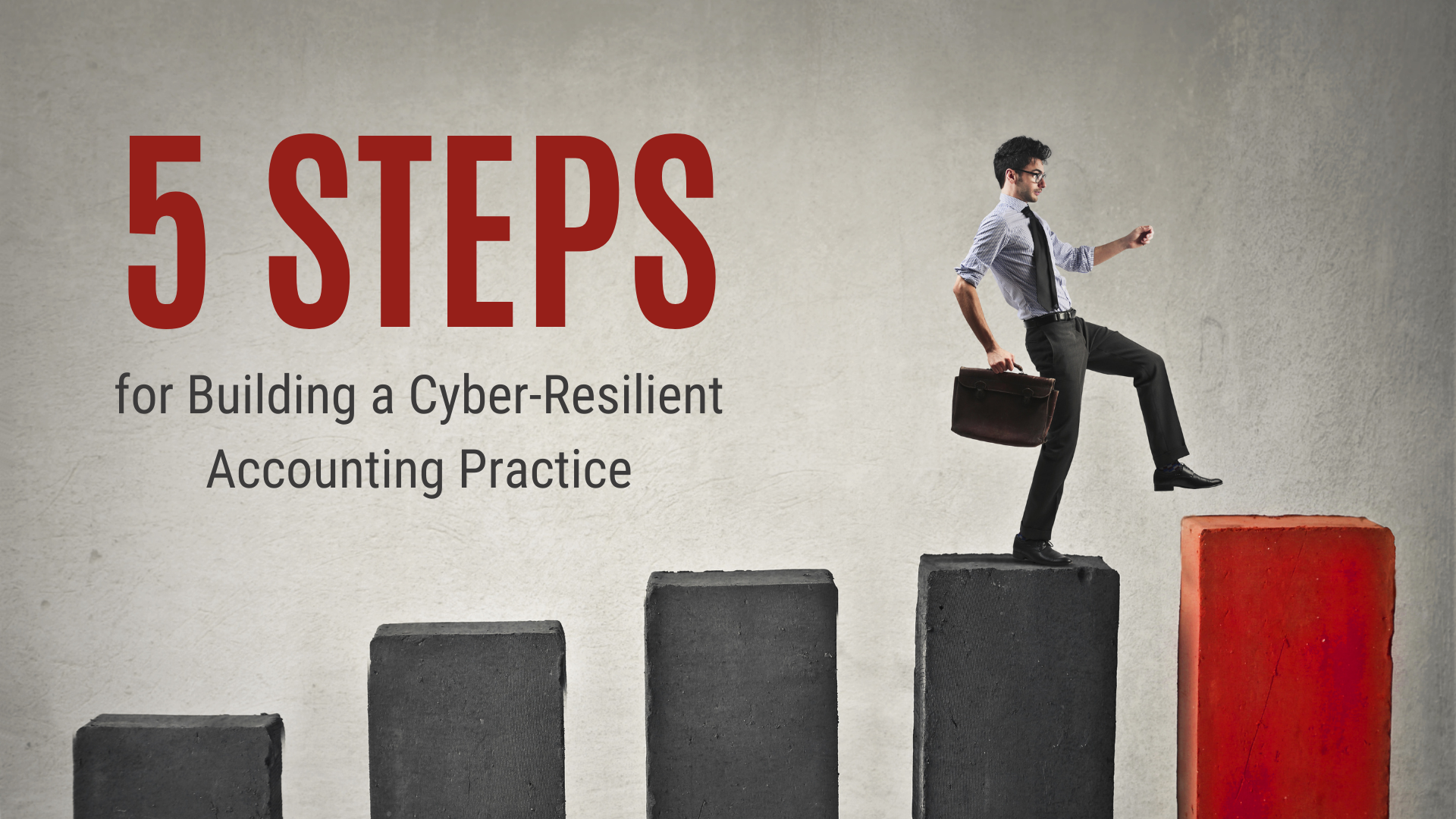5 Warning Signs Your Accounting Firm Might Be Under Cyber-Attack
Hey there, number crunchers! It's your friendly neighborhood IT blogger back again, this time to talk about something that might make your...
4 min read
Monreal IT : Updated on October 15, 2024

Accounting firms are increasingly reliant on technology to handle sensitive financial data. While this has streamlined operations, it has also made accountants prime targets for cybercriminals. Threat actors understand the value of financial data and see accounting firms as a potential goldmine of sensitive information. As a result, they deploy a range of cybersecurity threats aimed at compromising firms' data, reputation, and clients.
This blog post will explore the top cybersecurity threats facing accounting firms today, highlighting how these threats specifically target the sensitive financial data handled by CPAs.
Phishing remains one of the most prevalent cybersecurity threats for accounting firms. Phishing attacks occur when cybercriminals impersonate legitimate entities, such as banks, government agencies, or clients, to trick employees into divulging sensitive information, like login credentials or financial data.
For accounting firms, the risk is particularly high due to the nature of their work. Accountants regularly interact with banks, financial institutions, and clients via email, making it easy for cybercriminals to spoof trusted sources. A cleverly crafted phishing email might appear to come from a familiar client requesting updated bank account details for payment processing. Once the accountant provides the information, the attackers can gain access to client funds, business accounts, and other financial assets.
Phishing attacks can be especially dangerous for accounting firms because the stolen data is often used to commit large-scale financial fraud. The repercussions may involve financial losses, damage to reputation, and legal responsibility if client data is breached.
Ransomware is another significant threat to accounting firms. Ransomware attacks involve the use of malicious software that encrypts an organization's data, rendering it inaccessible until a ransom is paid to the attacker. For firms that handle critical financial data, losing access to that information, even temporarily, can have devastating consequences.
Accounting firms are prime targets for ransomware attacks because their data is highly valuable and time sensitive. Firms might be working on tax filings, audits, or financial statements that must be completed by strict deadlines. In these cases, paying a ransom can feel like the only viable option to avoid costly delays or breaches of client trust.
Additionally, the data managed by accounting firms frequently includes sensitive financial records, Social Security numbers, bank account information, and tax identification numbers. If ransomware attackers gain control over this data, they can threaten to expose or sell it on the dark web, adding pressure on firms to comply with their demands.
Beyond financial losses, falling victim to a ransomware attack can tarnish a firm's reputation. Clients rely on their accountants to safeguard their most sensitive information, and failing to do so can lead to a loss of trust and business.
Data breaches are a constant threat for any organization dealing with confidential information; this is even more potent a motivator for accounting firms. A data breach occurs when unauthorized access to private data is gained, often resulting in the exposure of sensitive information.
For accounting firms, data breaches can lead to the loss of personal client information, such as tax filings, financial statements, and social security numbers. These breaches not only compromise client privacy but can also lead to identity theft and fraud. Cybercriminals who obtain this type of information can use it to steal identities, open fraudulent credit accounts, or file fraudulent tax returns.
One of the greatest risks to accounting firms is that many of them store large amounts of historical data on their clients. This archived data can be especially vulnerable if firms do not take the necessary steps to protect it, such as using encryption and access controls. In some cases, employees might unknowingly leave files exposed on shared drives or cloud storage, making it easy for cybercriminals to access the information.
The damage from a data breach can extend beyond financial losses. It can severely impact the firm's reputation and erode client trust. In highly regulated industries like accounting, firms could also face significant penalties for failing to comply with data protection laws such as the Gramm-Leach-Bliley Act (GLBA) or the Health Insurance Portability and Accountability Act (HIPAA).
Not all cybersecurity threats come from outside actors. Insider threats, whether intentional or accidental, can be just as damaging to accounting firms. Insider threats involve employees, contractors, or other trusted individuals misusing their access to sensitive data.
In some cases, malicious insiders may deliberately steal data to sell or use for personal gain. In other instances, insider threats may arise from negligence, such as employees falling for phishing scams, losing devices containing client data, or accidentally sharing sensitive information with unauthorized parties.
Accounting firms are particularly vulnerable to insider threats because employees often have access to sensitive financial data. Even low-level employees could unintentionally expose valuable client information, leading to potential breaches.
To mitigate this risk, accounting firms must implement strict access controls, regularly train employees on cybersecurity best practices, and conduct thorough background checks on employees and contractors. Monitoring employee activity and limiting access to sensitive data based on job roles can also reduce the risk of insider threats.
Given the increasing threat landscape, accounting firms must prioritize cybersecurity. Implementing robust cybersecurity measures is essential to protect both the firm and its clients.
Cybersecurity threats pose significant risks to accounting firms, from phishing and ransomware to insider threats and data breaches. These threats specifically target the sensitive financial data that CPAs handle, making it essential for firms to implement comprehensive security measures. By taking proactive steps to educate employees, encrypt data, and restrict access, accounting firms can significantly reduce their risk and protect their clients from harm.
Prioritizing cybersecurity is not just about safeguarding data—it's about preserving the trust and integrity that clients expect from their accounting professionals.
We’re Monreal IT, and we provide managed cybersecurity and managed IT services in Cleveland, Ohio. Get in touch today to elevate your organization’s cybersecurity posture.

Hey there, number crunchers! It's your friendly neighborhood IT blogger back again, this time to talk about something that might make your...

Hey there, fellow number crunchers! Let's face it, the world of accounting isn't exactly known for its adrenaline-pumping excitement. But when it...

Is That Ticking Sound Your Server... or a Time Bomb? I'll never forget a call we got a few months ago. It was from a local manufacturing company, and...